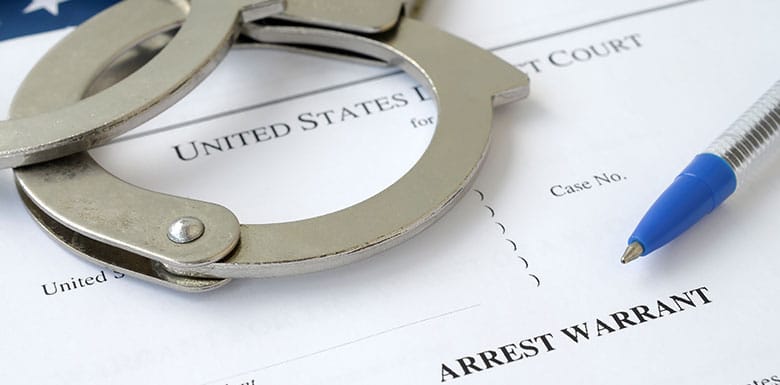What is the Difference Between Federal and State Prison?
The United States has millions of individuals incarcerated in local jails, state prisons, and federal prisons. Although many people use the terms jail and prison interchangeably, they are different institutions. There are also many differences between state and federal prison systems.
Understanding the differences between these institutions will help you prepare for the future when you have been charged with a criminal offense. If you hope to get the charges against you reduced or dismissed entirely, contact a California criminal defense lawyer at Morris Law for help.
Characteristics of Federal Prison
The Department of Justice’s Federal Bureau of Prisons (BOP) oversees the federal prisons across the United States. When a person violates federal law, they can face punishment in the federal prison system. The security levels of federal prisons include:
- Minimum security
- Low security
- Medium security
- High security
- Administrative security
Unlike state prison terms, those sentenced to federal prison are not eligible for parole and often face far more severe sentences. Federal prisons are operated and funded by the U.S. Department of Justice, responsible for the operation and management of federal correctional institutions.
Crimes That Warrant Federal Prison
Many crimes can be considered federal, depending on the details of your case. Generally, individuals accused of violating federal laws or committing federal crimes face federal prison sentences. Some of the more common types of crimes that warrant federal prison include:
- Immigration crimes
- Sex offenses
- White-collar crimes
- Racketeering
- Drug trafficking
- Crimes on federal land
- Crimes against federal property
- Crimes against federal officers
- Crimes that occur in multiple states
Organizations like the FBI and DEA will investigate criminal offenses in federal court. Federal judges appointed by the president will then prosecute them. It is important to remember that cases in federal court will take far longer to resolve and carry more severe penalties.
Suppose you have been accused of committing a federal offense. In that case, it may be in your best interest to retain a powerful legal defender who can help you dodge the fallout of a conviction in federal court.
Notable Federal Prisons in California
There are several notable federal prisons across the United States. However, the most notable correctional institutions and federal prisons in California include:
- The Taft Correctional Institution
- The United States Penitentiary in Atwater
- The United States Penitentiary in Victorville
- The Los Angeles Metropolitan Detention Center
- The Federal Correctional Institution in Dublin
- The Federal Correctional Institution in Lompoc
- The Federal Correctional Institution in Terminal Island
- The San Diego Metropolitan Correctional Center
If you are found guilty of a federal criminal offense in California, you are at risk of being sent to any federal prisons or elsewhere in the United States.
Characteristics of State Prison
Taxpayers fund California state prisons. Prisoners in state prisons can be placed at several security levels, including:
- Minimum security
- Medium security
- Maximum-security
Your convicted crime will determine the security prison you are sentenced to. For example, if you are accused of a non-violent offense, you could be sent to a minimum-security prison. However, if you were convicted of homicide, you would be more likely to be sent to maximum-security state prison. Maximum-security state prisons have strict security measures to help protect other inmates, correctional officers, and other prison staff.
Unlike in federal prisons, state prisoners may be allowed to work in the prison yard or access other privileges such as television or extra commissary items. State governments are responsible for the operation of state prisons, and they are responsible for prosecuting individuals accused of violating statewide laws.
Crimes That Warrant State Prison
State prisons often house violent criminals and habitual offenders. Some of the more common types of crimes that warrant state prison include:
- Drug crimes
- Sex crimes
- Murder
- Robbery
- Burglary
- Rape
- DUI
- Animal abuse and neglect
- Theft
- Arson
Local law enforcement officials and county sheriffs are responsible for handling investigations into state crimes. Your local district attorney is responsible for prosecuting these cases, and judges are appointed by the governor.
Make sure you have a legal advocate on your side who understands the intricacies of state and federal laws so they can defend you no matter what level of crime you are facing.
Notable California State Prisons
Some of the more notable California state prisons include:
- The Sacramento California State Prison
- The Valley State Prison
- The Mule Creek State Prison
- The San Quentin State Prison
- The Calipatria State Prison
- The Pleasant Valley State Prison
- The Wasco State Prison
With more than 30 state prisons in California, there is little chance you’d be sent to the one you live nearby. Even if you live near a California state prison, you may be sent to one further away if convicted and sentenced. Take steps to protect your freedom and secure the acquittal you need by contacting a criminal defense attorney for help.
Similarities Between Federal and State Prisons
Some of the more common characteristics between state and federal prisons include:
- Having varying security levels
- Being funded by the taxpayers
- Dedicated to the rehabilitation of state and federal prison inmates
- Having separate living facilities based on gender
Meet With a Criminal Defense Attorney Today
If you have additional questions about the differences between local jails, state prisons, and federal prisons, or if you are ready to start your defense strategy, reach out to an experienced California criminal defense lawyer at Morris Law.
Schedule your confidential case review as soon as today when you fill out our secured contact form or call our office to get started on your defense strategy.



